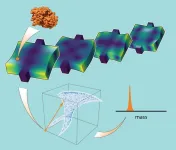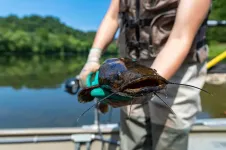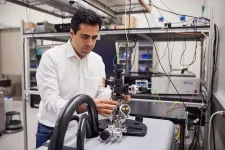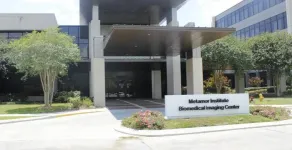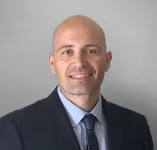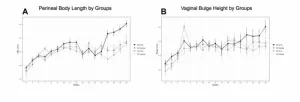(Press-News.org) In a paper published in PLOS Sustainability and Transformation, an international team of researchers looked at how science could play a more active role in managing crises. The paper builds on the outcomes of the international conference “What Role for Science in Crisis Times? Outlook in the Health, Environment, and Agriculture Interconnected Areas”, held in Montpellier in 2022.
To enhance science’s contribution to crisis management, the paper emphasises the need for interdisciplinarity, where science is integrated across disciplines, and transdisciplinarity, which incorporates various societal actors and stakeholders. By co-designing and co-producing solutions with scientists, policymakers and affected populations, transdisciplinary science can contribute to integrated and cooperative decision-making.
“We are now living in a polycrisis world, where science should be playing a more engaged and active role,” says Paul Shrivastava, Co-President of The Club of Rome, Professor of Management & Organizations, The Pennsylvania State University and the lead author of the paper. “It should be more fluid, timely, and integrated with social and political decision-making.”
The paper summarises the key actions to harness science to tackle crises, which include implementing interventions on both global and local scales, engaging the public, democratising science, adopting new governance frameworks, and integrating community engagement. It also highlights the importance of aligning science-based interventions with cultural norms and increasing the engagement with countries suffering from unequal access to scicence.
The authors stress that the effort needs to come from both directions—political leaders need to proactively engage with scientists and rely on evidence-based solutions, while scientists need to seek access points to connect with crisis responders and affected populations. The latter could be encouraged by rewarding scientists for their real-world contributions within the academic system and increasing funding for research with a direct crisis impact.
"Science has identified the existential threats we face, but this knowledge is often ignored, contested, or slowly acted upon. It’s time to flip the science model and mobilise significant resources for the benefit of people and the planet," says Carlos Alvarez Pereira secretary general of The Club of Rome and co-author of the study. “That is why The Club of Rome and partners established the Earth-Humanity Coalition — a global network that encourages transformative research and action at all levels.”
This paper underscores the vital role of science in navigating crisis-ridden times and urges
decision-makers to view scientific input as crucial for fostering sustainability and transformation. By harnessing the transformative power of science, transcending traditional boundaries, and cultivating collaborative solutions, we can chart a course towards a sustainable future in an equitable and healthy world for all.
END
Harnessing science to tackle global crises
2024-10-22
ELSE PRESS RELEASES FROM THIS DATE:
Caltech's new fingerprint mass spectrometry method paves the way to solving the proteome
2024-10-22
Caltech scientists have developed a method driven by machine learning that allows them to accurately measure the mass of individual particles and molecules using complex nanoscale devices. The new technique opens the possibility of using a variety of devices for the measurement of mass and, therefore, the identification of proteins, and could pave the way to determining the sequence of the complete proteome, the collection of all the proteins in an organism.
Proteins are the engines of living systems. Which proteins are made, ...
Invasive flathead catfish impacting Susquehanna’s food chain, researchers find
2024-10-22
UNIVERSITY PARK, Pa. — Flathead catfish — native to the Mississippi River basin — were first detected in the Susquehanna River in Pennsylvania in 2002, according to the U.S. Geological Survey. In the two decades since then, the invasive species has spread throughout the river basin. The impact of the large predator on the waterway’s food webs and ecology was unknown, but now a research team is beginning to understand what Susquehanna flatheads are eating and how their presence is affecting native aquatic species in the river.
The findings, which the team said state ...
Javadi receives DOE Early Career Award to study qubit hosts
2024-10-22
NORMAN, OKLA. – Alisa Javadi, Ph.D., professor at the University of Oklahoma School of Electrical and Computer Engineering and the Homer L. Dodge Department of Physics and Astronomy, has received funding from the U.S. Department of Energy Early Career Research Program for research that offers the potential for advancing quantum technology development.
Javadi’s research will test the use of cerium oxide as a host for quantum bits, or qubits. Qubits, the building blocks of quantum computing, need an environment free ...
Obesity Medicine Fellowship created at Pennington Biomedical
2024-10-22
Obesity Medicine Fellowship Created at Pennington Biomedical
Fellowship product of collaboration between Pennington Biomedical Research Center’s Metamor Clinic and Louisiana State University Health New Orleans School of Medicine
FOR IMMEDIATE RELEASE
Oct. 22, 2024
BATON ROUGE – A new Obesity Medicine Fellowship at Pennington Biomedical Research Center is now open for candidate applications. The one-year program is the result of a collaboration between Pennington Biomedical and Louisiana State University Health ...
Structural biology analysis of a Pseudomonas bacterial virus reveals a genome ejection motor
2024-10-22
BIRMINGHAM, Ala. – The viruses that infect bacteria are the most abundant biological entities on the planet. For example, a recent simple study of 92 showerheads and 36 toothbrushes from American bathrooms found more than 600 types of bacterial viruses, commonly called bacteriophages or phages. A teaspoon of coastal seawater has about 50 million phages.
While largely unnoticed, phages do not harm humans. On the contrary, these viruses are gaining increasing popularity as biomedicines to eradicate pathogenic ...
Remote tool developed to helped detect autism and developmental delay in children with limited access to specialists
2024-10-22
A Ukrainian researcher has developed a new digital tool for detecting autism and developmental delay in children. Her research has been published in Cambridge University Press journal Cambridge Prisms: Global Mental Health.
The tool incorporates the basic principles of the Kids’ Development Diagnosis and Determining the Risk of Autism (KiDD) methodology, for children aged 1.5 to 6 years old, into mobile app form. It has the potential to help diagnose children more swiftly and efficiently, which could have major positive ...
Texas Accounting Chair Steven Kachelmeier garners coveted award for scholarship
2024-10-22
Texas Accounting Chair Steven Kachelmeier Garners Coveted Award for Scholarship
AUSTIN, Texas — The American Accounting Association (AAA) presented its Lifetime Achievement Award for Behavioral Accounting Research to Steven Kachelmeier, a professor and chair of the Department of Accounting at The University of Texas McCombs School of Business. Kachelmeier, the Thomas O. Hicks Endowed Chair in Business, accepted this prestigious award during the weekend at the association’s 2024 Accounting ...
CABHI launches funding program that ignites innovation to advance healthy aging
2024-10-22
TORONTO, Oct. 22, 2024 – Today, the Centre for Aging + Brain Health Innovation (CABHI), powered by Baycrest launched Ignite, its new funding program to support Canadian innovators designing solutions for older persons. As Canada’s aging population rapidly grows – with nearly 20 per cent of people above the age of 65 – so too will the need for innovations that enhance the lives of older persons, including those impacted by dementia.
Canadian early-stage innovators – including researchers, point-of-care staff, and companies – are developing ...
A fully automated AI-based system for assessing IVF embryo quality
2024-10-22
A new artificial intelligence-based system can accurately assess the chromosomal status of in vitro-fertilized (IVF) embryos using only time-lapse video images of the embryos and maternal age, according to a study from investigators at Weill Cornell Medicine.
The new system, called "BELA,” and described in a paper published Sept. 5 in Nature Communications, is the team’s latest AI-based platform for assessing whether an embryo has a normal (euploid) or abnormal (aneuploid) number of chromosomes—a key determinant of IVF success. Unlike prior AI-based approaches, BELA does not need to consider embryologists' subjective assessments of embryos. ...
Senolytics dasatinib and quercetin for prevention of pelvic organ prolapse in mice
2024-10-22
“This study represents one of the first to evaluate the impact of senolytic agents D+Q on the clinical development of pelvic organ prolapse and expression of proteins associated with cellular senescence in a mouse model.”
BUFFALO, NY- October 22, 2024 – A new research paper was published in Aging (listed by MEDLINE/PubMed as "Aging (Albany NY)" and "Aging-US" by Web of Science), Volume 16, Issue 19 on September 26, 2024, entitled, “Use of the senolytics dasatinib and quercetin for prevention of pelvic organ prolapse in a mouse animal model.”
Pelvic organ prolapse is a common condition among women ...
